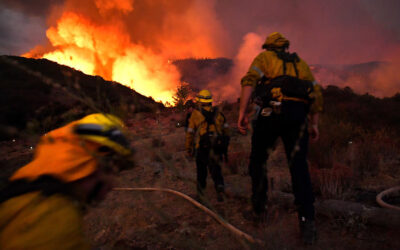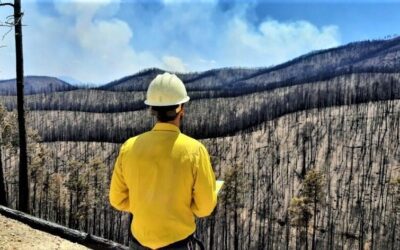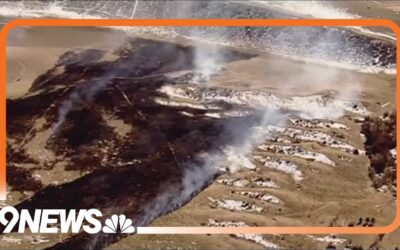For the last few years, a group of current and retired federal wildland firefighters have been working on a resolution to the long term problems of federal wildland firefighter pay, job classification, mental and physical health and others. If you were a beneficiary of the federal wildland firefighter pay supplement these last two years, you can thank the hard working volunteers at Grassroots Wildland Firefighters along with some key players in congress, the White House, NFFE and agency personnel. But the funding for the supplemental payments is coming to an end. The supplement was only authorized for 2 years. It was meant to give the federal wildland agencies time to come up with a permanent fix for the pay system. And here we are… waiting to see if congress will authorize a new pay plan for the federal wildland firefighters.
Let’s go back in time, back to the 1970s when I started my long career as a wildland firefighter. It was a different world all those years ago. Depending on where you lived and worked, fire seasons might last 2 or 3 months. Maybe you lived in a part of the country that had a split season. Back in those days, college students filled out most of the crews because, they could finish their spring semester, start work on a fire crew and be back at school as the fire season was winding down at the end of the summer. That’s not the case anymore.
Fire seasons are longer and more severe. Expectations on the firefighters are greater too. As a fire leader, I demanded professionalism and a high degree of proficiency in all our personnel, but especially of our module leaders. Crew and engine captains have always been the key linchpin in our organizations. The difference between serious injuries or worse on a fire versus everyone coming home safely is often on the shoulders of the lowest paid leaders in the organization.
Over the last 20 years we started upgrading these unsung heroes who are tasked with the safety of their crew. Slowly from one region to another, captains slowly started getting upgraded to GS-6, then 7, then 8. They went from a seasonal employee to a permanent seasonal. Then they became permanent fulltime employees. The same is going on with all the crew members. There are more and more permanent full time wildland firefighters in the federal service. I often think about the demands of a federal agency engine captain working in the interface now compared to my first summer on a Forest Service engine in the mid-1970s. The legal requirements, technical expertise and professionalism does not compare to what the job was like when I began my career.
Compare the difference in pay and benefits between state fire organizations too. It can be a huge difference depending on what part of the country you’re in. The same can be said for local fire departments and contract companies. But the federal wildland fire service makes up over 15,000 firefighters. They’re the first responders to much of our country’s wildlands and the communities within.
As you know, wildland firefighters respond to a whole lot more than fires. Many of you have been on incidents such as the shuttle recovery, hurricanes, floods, New York City after September 11th, Covid vaccination efforts and the list goes on and on. And oh yea, the mega-fires… year after year.
Now back to my bucolic summers of the 1970s. We went to a lot of fires back then. But in the 1970s a huge fire was 10,000 acres. And before you old timers start telling me that I’m full of sh_t, yes there were big fires in the old days too. But we didn’t have multiple mega-fires burning in multiple locations throughout the west every summer. In the old days, the mega-fires were a rare event. Now, they’re the norm.
So what does that have to do with pay and benefits? The job is not the same. The demands we put on our firefighters has greatly increased. I can remember when 700 hours of OT was a big thing. Then it was 1000 hours of OT. And now the numbers just keep going up. Our firefighters are dealing with increased incidences of substance abuse, suicides and divorces. It’s one thing to have to work hard and be gone for months at a time. But we expect our wildland firefighters to do all that and be paid poorly for their efforts. It’s no wonder they’re suffering family problems and all the challenges that come from a stressful work and home environment.
Oh, and let’s not forget that we really don’t have federal wildland firefighters. What we have are Forestry and Range technicians. How’s that for adding salt to an open wound. We can’t even call them firefighters. We don’t have a wildland fire job series for several reasons. The first reason is because in the early years, most fires were fought by forestry and range personnel who were out doing other tasks in the woods and only came together to fight the fire when it was necessary. By the 1970s when more “inter-regional” hotshot crews were brought on, we just kept up the tradition of being forestry technicians. I remember being told by an HR specialist in those days that the Forest Service did not hire firefighters. “We don’t have firefighters in the Forest Service,” she said. I replied, “I’m just trying to get on the hotshot crew and I thought they were firefighters.” That attitude persists, as ridiculous as it may be. Not too long ago, a certain Secretary of Agriculture was visiting our office and told us that the Forest Service didn’t have firefighters. I wanted to ask him what he wanted me to do with our fleet of fire engines. Instead, I just got up and walked out of the room.
And the second reason? Think about it. If we are firefighters – we’d have to be paid like firefighters. The federal government can hardly afford that. There are far too many more important projects to spend tax dollars on than the “forgotten heroes” protecting the nation’s parks, wildlands and communities. Maybe I’m getting too sarcastic now, but there’s truth in these words.
Right now our Senators and Representatives are discussing the proposed federal budget. In it, there are provisions to improve the pay of the federal wildland firefighters. The White House had directed the wildland agencies to come up with a pay plan that would duplicate the pay that many of you have been receiving in the supplemental pay boost. The proposal doesn’t quite meet that goal, but its progress. In order to make the same amount as your supplemental payment, you’ll have to go out on multiple fire assignments. Most of you will come out okay if the new budget proposal is passed. But not everyone. If passed, will the new pay plan solve the pay issue? No. Will it improve the situation? Yes. It’s a place to anchor our efforts to keep building on.
What about state wildland firefighters from states with low pay? Does this proposal help them? Not directly but it will. Remember the old adage, “A rising tide lifts all boat.” The job market has put employees in a better position. Large fire departments don’t have 2000 job applicants for 20 openings like they did 10 or more years ago. As fire departments scramble to fill their vacancies, wildland agencies will lose more and more employees to the well paid municipal and state agencies. Wildland firefighting will become more respected and barring a new ice age, eventually everyone’s pay will rise.
This is a complex issue. And like all complex issues, it can’t be solved with simple answers. We are not going to solve our nation’s wildland firefighting challenges with a compromise bill that squeaks through congress. But a beach is made up of trillions of grains of sand. And this effort, if successful, is a bucket of sand for the beach. Let’s be thankful that the agencies are working with elected officials and some volunteers from your ranks to anchor in and make some progress. Hang in there, and be proud of the work you’re doing. I know I am.
Now Available
Both Sides of the Fire Line is Bobbie Scopa’s uplifting memoir of bravely facing the heat of fierce challenges, professionally and personally. It’s available now.
Order from Amazon Order from Barnes & Noble
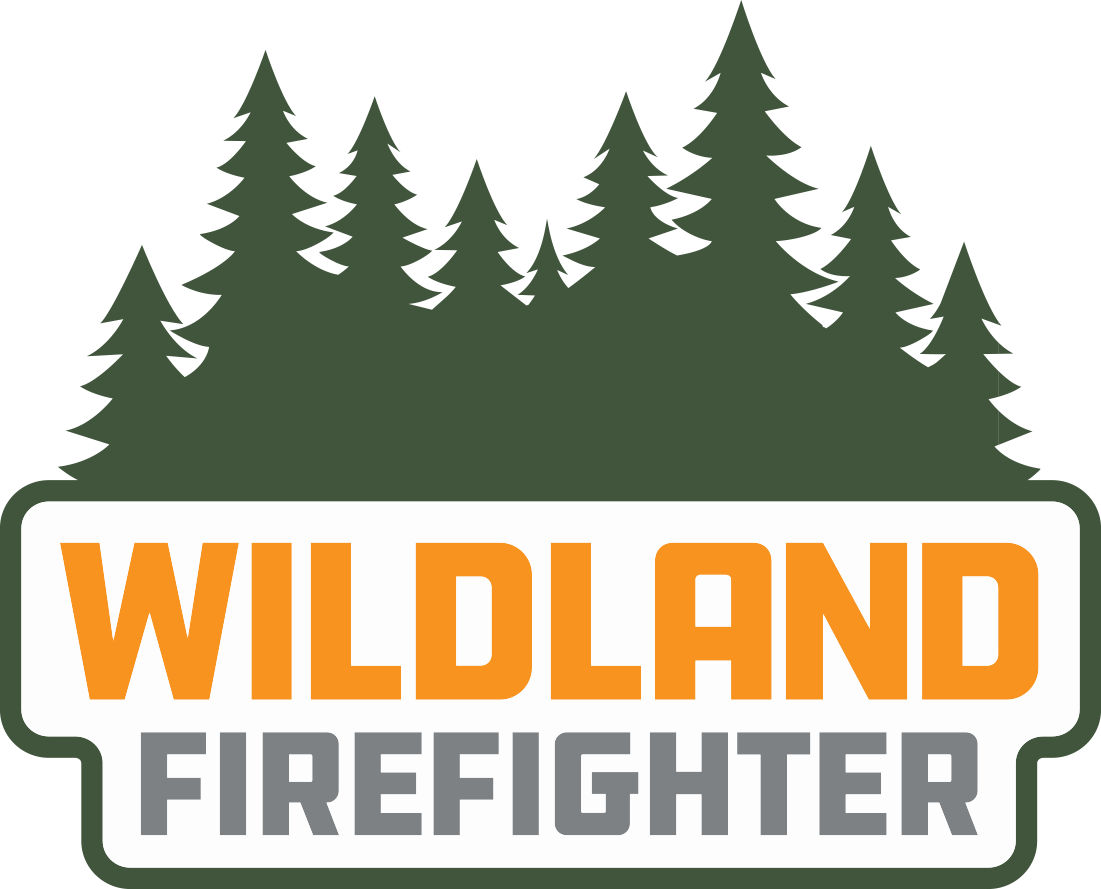
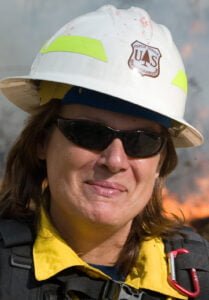 Bobbie Scopa started her career as a seasonal firefighter in 1974. After graduating from Arizona State University, she went on to work in fire and natural resource management. Eventually she left the wildand agencies to work full time for a structure fire department. She finished her Masters in Forestry at NC State then went back to the US Forest Service and BLM eventually becoming the Assistant Regional Fire Director in Region 6. Bobbie has spent many years working as a type 1 and 2 Operations Section Chief. You can listen to Bobbie tell audio stories from her long career at BobbieOnFire.com. She has also recently completed her memoir titled “Both Sides Of The Fire Line”. It will be available through Chicago Review Press late summer of 2022.
Bobbie Scopa started her career as a seasonal firefighter in 1974. After graduating from Arizona State University, she went on to work in fire and natural resource management. Eventually she left the wildand agencies to work full time for a structure fire department. She finished her Masters in Forestry at NC State then went back to the US Forest Service and BLM eventually becoming the Assistant Regional Fire Director in Region 6. Bobbie has spent many years working as a type 1 and 2 Operations Section Chief. You can listen to Bobbie tell audio stories from her long career at BobbieOnFire.com. She has also recently completed her memoir titled “Both Sides Of The Fire Line”. It will be available through Chicago Review Press late summer of 2022.